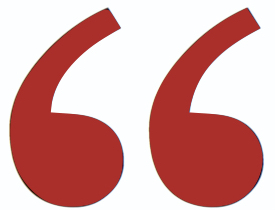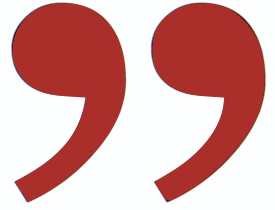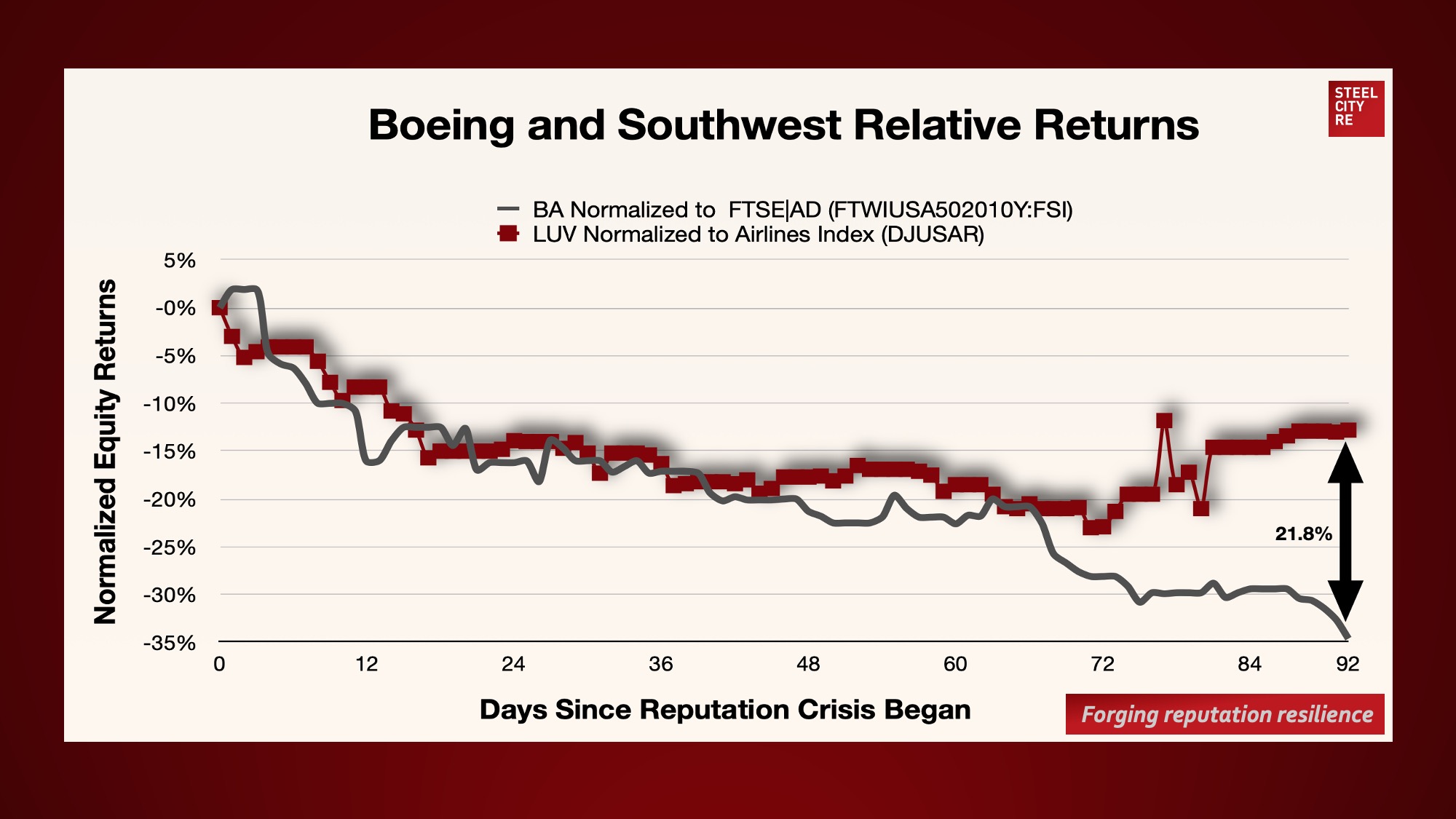Boeing Company Reputation Crisis
Boeing Company reputation crisis day 92. With the ongoing erosion of Boeing’s reputation value, the aerospace and defense giant’s equity is sinking as shareholders contemplate the often-hidden long costly tail of reputation damage (video) the firm faces–now perhaps not so hidden? Its ROI since the January 5 safety incident when a door plug detached mid flight is under performing the FTSE US aerospace and defense index (FTWIUSA502010Y:FSI) by 34.6%. This is much worse than the 12.8% equity under performance of Southwest Airlines relative to the US airlines index (DJUSAR) on the 92nd day of its reputation crisis following its IT systems meltdown more than a year ago. BA is under performing the S&P500 by 36.2%. The average Day 92 loss in a reputation crisis, according to Steel City Re’s models, is 4.6%. Steel City Re’s Resilience Monitor for Boeing Company reported in December 2023 that the company was at extreme risk for a major adverse reputation event in the wake of mission-critical (safety) incident. It foretold that stakeholder reaction would be negative and extreme. A copy of that report is linked here.
Click on the image above to read more (No Paywall).

Equity is down 35% to peers which is 22% worse than Southwest Airline’s 13% day 92 under performance
Steel City Re: April 5, 2024

Steel City Re’s strategic tools (download a 2-page brochure here) help risk managers build corporate resilience by predicting reputation risk, protecting enterprise value, and promoting risk management. We help risk managers manage risk and add value across Boardrooms, C-Suites, and operational silos through reputation resilience.
Reputation is Mission-Critical
Boeing Company reputation crisis. Today’s sophisticated risk managers are strategic. They know that enterprise damage from reputation risks might be their greatest and longest lasting peril, so they monitor for red flags. They foster a culture that respects those warnings and facilitate processes to mitigate those risks. Their diligence strategically builds enterprise-wide resilience that informed stakeholders can appreciate.
The results of strategic reputation risk management are evident in reputation resilience. More than crisis recovery, they include customers buying, not boycotting; employees working, not fleeing; investors buying, not selling; lenders adjusting interest rates down, not up; regulators deferring, not enforcing; and social license holders acquiescing, not protesting.
Having a robust Reputation Resilience Program in place offers, amongst other benefits:
- Protection for the company, its staff, executives, and board from litigation and regulatory challenges
- Improved governance processes and better enterprise risk management protocols; i.e., measuring reputational risk
- Establishment of an agile operating, communications, and decision-making team, with clear roles and responsibilities, trained and ready to handle all reputational threats; i.e., a reputation risk management framework
- Proactive management of risks that could give rise to delays or derailing concerns around new product and strategic partnership launches
- Captured behavioral economic value from stakeholders; i.e., value of reputation
- Reduced costs of debt and risk transfer while boosting equity value; i.e., boosting reputational value
A hazard of reputation risk is a lurking gap between stakeholder expectations and reality. Another hazard is the emotional intensity associated with expectations. The peril is anger from disappointed stakeholders. This video explains the behavioral economic features of the many perils of reputation risk.
Mitigating risk strategically through expectation management and operational adjustments evinces thoughtful management and dutiful governance. Financing such risks evinces prudence, and doing so publicly enables stakeholders to appreciate and value the effort.
One Question
Boeing Company reputation crisis. Reputation risks are prevalent and material. Is promoting the quality of your risk management program part of your strategy?

